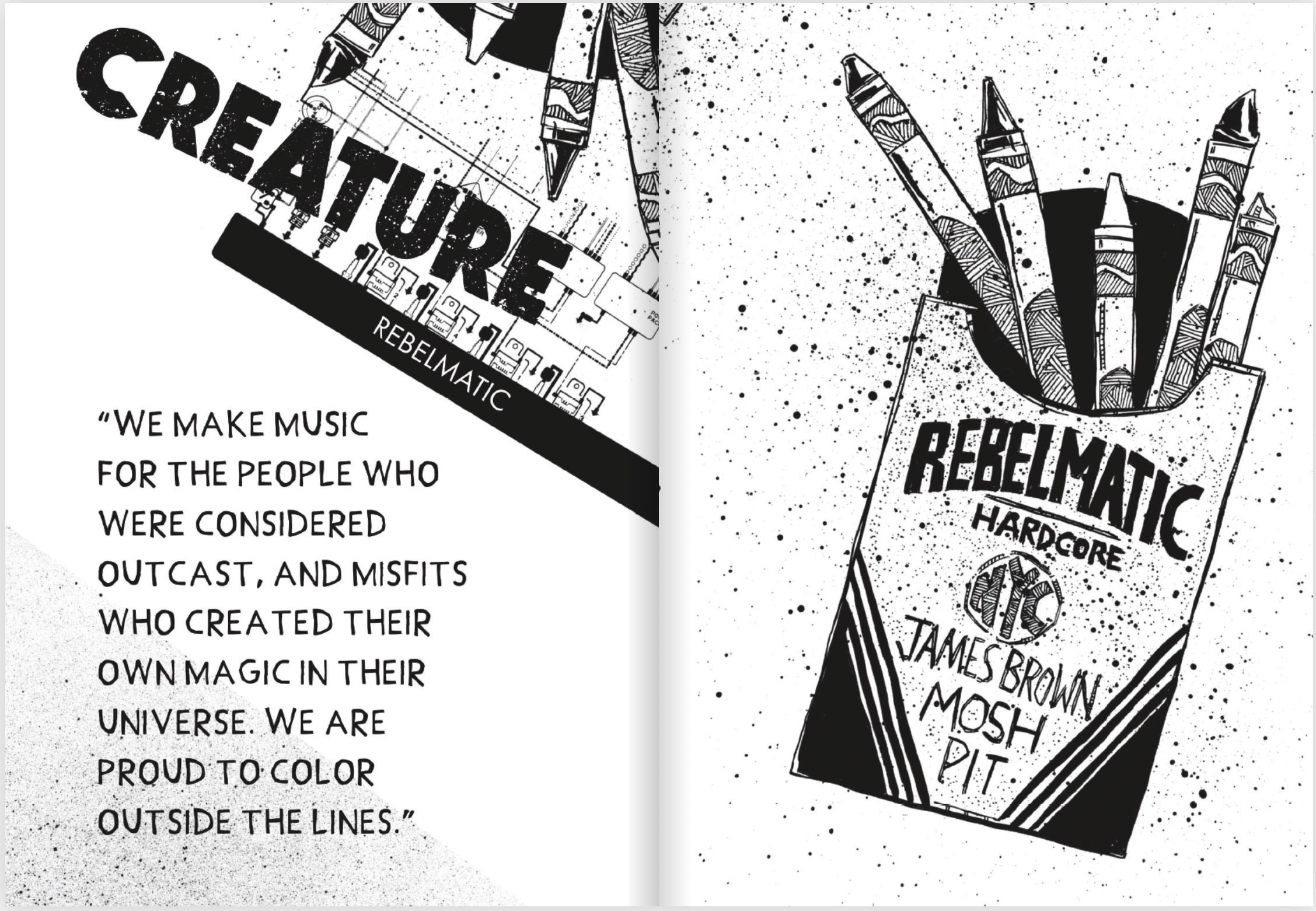Strange Glances
Strange Glances is a book that contains a collection of illustrated quotes from musicians, artists, and activists who have been touched by punk rock music in some type of way…and have garnered looks of curiosity, dismissal, or ridicule within and without their own scenes because of it.
Some have turned bemused looks into a tool for whimsy, and some have found in them a chance to laugh. Some have advice, and some just beam with security in their path. Some have been treated, perhaps, as second class citizens. Individuals can be easily beguiled into thinking that they shouldn’t believe that they are singled out on account of race in underground scenes, but seeing some of these brief assessments laid out in tandem may disavow some of that sentiment. Many have had to affirm to themselves and others that they actually do belong in this sometimes wild, strange & colorful, and sometimes dull, depressing & bleak corner of music.
I got the idea for Strange Glances while doing research for my previous project, the POCtober Sketchbook. In the interviews that I conducted with the Sista Grrrls; Tamar-Kali, Honeychild Coleman, Maya Sokora, and Simi Stone, I kept hearing about a fairly specific alienation within music scenes. At the same time I was doing research for another ongoing project, and seeing this alienation echoed in some of the online interviews I came across. It began to jog my memory about some of the things that I saw in the old punk zines. Then something started playing in my head - “Strange Glances,” - a (never released?) song by Bobby Porter’s Thin White Line, all the way from 90s Pittsburgh, PA. It became a soundtrack to my discovery, 4 minutes rife with a romantic alienation and the self destruction of rock n’ roll. I began collecting quotes, rediscovering where I saw them, feeling a little ill at ease sometimes for doing so…like how strange was I being, focusing on these things? Would people even want their words collated in such a way?
Regardless, I started asking others about their experiences, and added more thoughts and brief stories - from James Spooner, Bianca Xunise, Creature, Flora-Morena Ferierra-Lucini, Guitar Gabby, Ronald Wimberly - (and of course: “more!”) to the mix. I named it after the song that was stuck in my head, paid for it with grant money from the city, and held onto the constant hope that I’m contributing well, in some way.
6x8.25, staple bound, 100 lb color cover, matte.
80 lb satin inside paper w/ 40 pg of black and white illustrated quotes.
Excerpts from Strange Glances
“Growing up in West Philadelphia, which was all Black, we were some of the craziest guys you could have possibly seen walking the streets back then. We dressed in drag and wore wigs, basically daring people to bother us. People in the neighbourhood would say, ‘Don’t go into houses with those guys, you may not come out!’”
- Kenny Gordan, musician, Pure Hell
and we get such strange glances / strange views / strange glances / strange views
- Lyrics by Bobby Porter, the singer of 90s Pittsburgh punk band Thin White Line
“I recently played a big show at a stadium, opening for two major artists. After the show, I shared the video of my performance and received a strange comment on social media: ‘Are you really playing that thing, or is it a prop? Obviously you don’t fit the typical mold of a rock guitarist, but I’m just curious.’
I didn’t respond directly, instead, I use my presence on this earth as a sign of reclamation. I am not the anomaly, I’m the blueprint.”
- Guitar Gabby, musician, Guitar Gabby & The Txlips Band
“I’ve actually experienced that, when there have been white people in the DC hardcore scene that come in 10-12 years after I’ve already been around, I’ve already been contributing, booking shows, building up bands, being in many bands and they’ll write a book or they’ll do a photo exhibition or whatever with pictures from shows that I’ve booked, from shows with bands that I’ve been in, talking about stories that could have only have happened if I’d booked it. And I’m completely left out of the narrative. So that is a very common theme.”
- Flora-Morena Ferreira Lucini, musician, Maafa, The 1865



